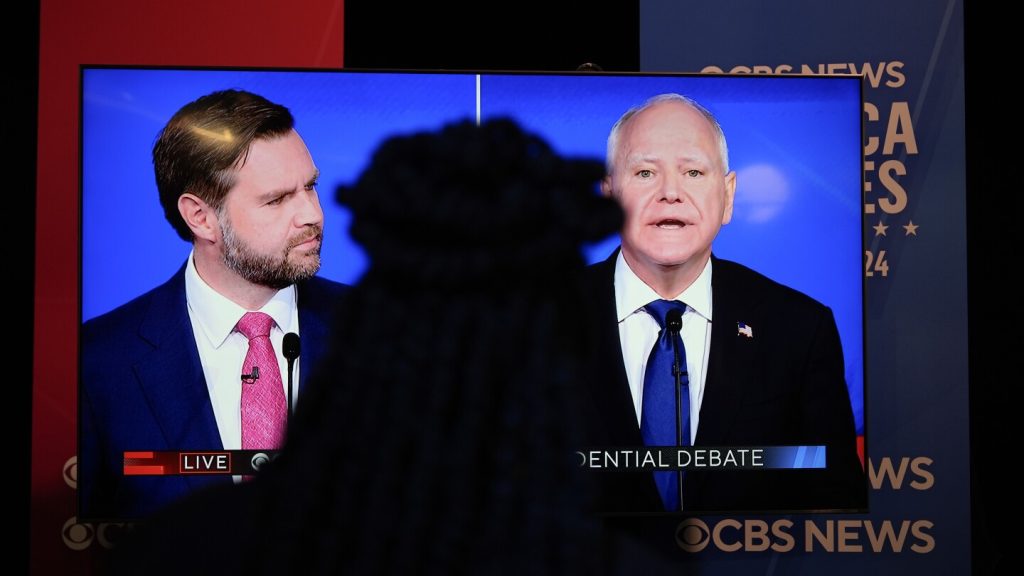In a policy-heavy discussion that may be the last debate of the 2024 presidential campaign, Vice Presidential hopefuls Tim Walz and JD Vance focused their criticism on the top of the ticket. This debate was the first encounter between Minnesota’s Democratic governor and Ohio’s Republican senator, and it took place just five weeks before Election Day. The discussion highlighted the policy and character differences between their running mates and aimed at introducing themselves to the country.
The debate started with a discussion about Iran’s ballistic missile attack on Israel, showcasing the contrast between the Democratic and Republican tickets on foreign policy. Walz promised “steady leadership” under his running mate Harris, while Vance pledged a return to “peace through strength” under Trump. This set the tone for the rest of the debate, with both candidates outlining their visions of American leadership and addressing global threats such as the Iranian threat to the region and U.S. interests.
Both Walz and Vance directed their attacks at the running mates who weren’t present in the debate, focusing on criticizing Harris and Trump. They maintained a genial demeanor while launching their criticisms, reflecting the traditional role of a vice presidential nominee as the attack dog for their running mates. The discussion included topics such as immigration, risk pools, housing regulations, and energy policy, showcasing a deep dive into policy details and a departure from the usual style of presidential debates.
The debate took a wonky policy turn, with discussions on the Affordable Care Act, housing regulations, energy policy, and trade. Both candidates delved into the minutiae of various policy proposals, with Walz highlighting his experience with healthcare legislation and Vance defending Trump’s actions on the Affordable Care Act. The focus remained on substantive policy issues rather than flashy soundbites or personal attacks, making it a departure from past presidential debates.
The topic of abortion became a key point of contention between Walz and Vance, with the former emphasizing reproductive rights and the latter advocating for state-by-state regulations on abortion. Walz highlighted the importance of trusting women and doctors in making decisions about their bodies, while Vance steered the conversation towards economic policies that could alleviate the need for abortions. The discussion showcased contrasting views on a divisive issue and reflected the candidates’ differing approaches to women’s healthcare.
Both candidates put a domestic spin on climate change, focusing on renewable energy investments, manufacturing jobs, and record levels of oil and natural gas production. While Vance emphasized moving manufacturing to the U.S. as a way to fight climate change, Walz highlighted the Biden administration’s environmental policies. The discussion showcased a positive outlook on addressing climate change through domestic initiatives, despite the global nature of the crisis. The debate concluded with Vance refusing to acknowledge Trump’s 2020 election loss, leading to a tense exchange between the candidates over democracy and accountability.















